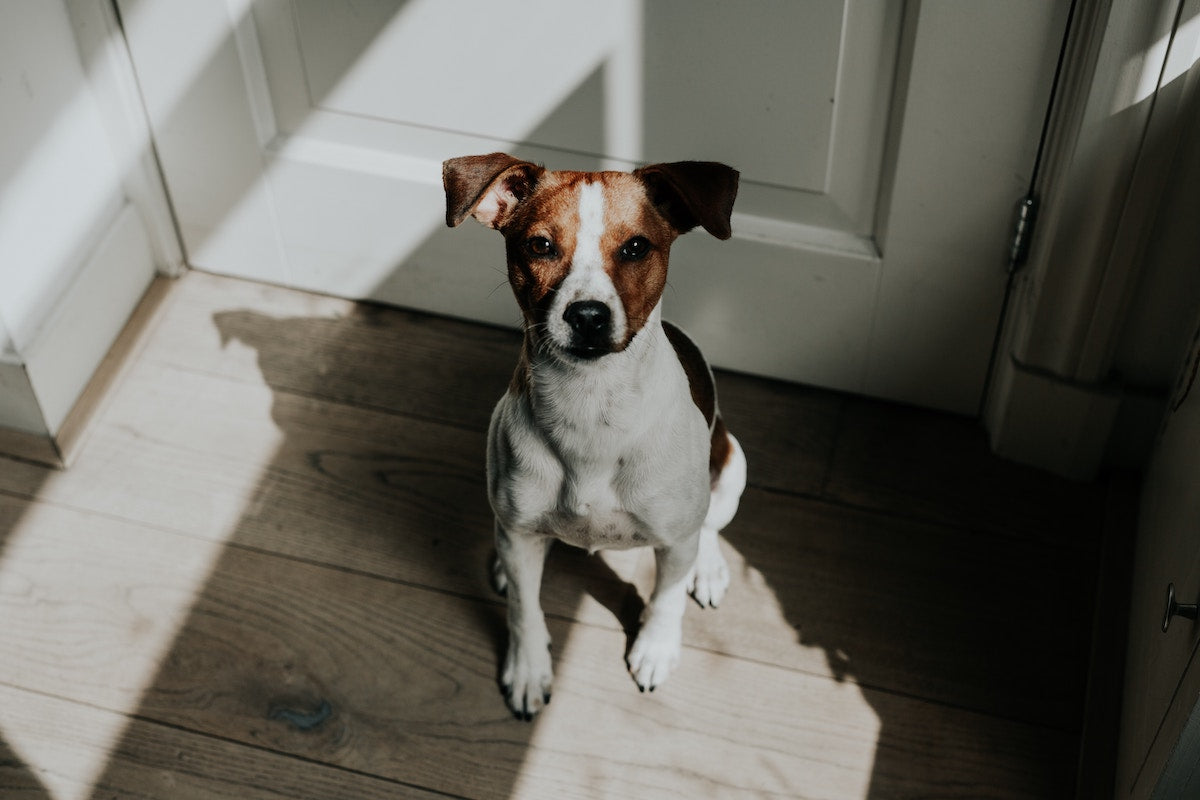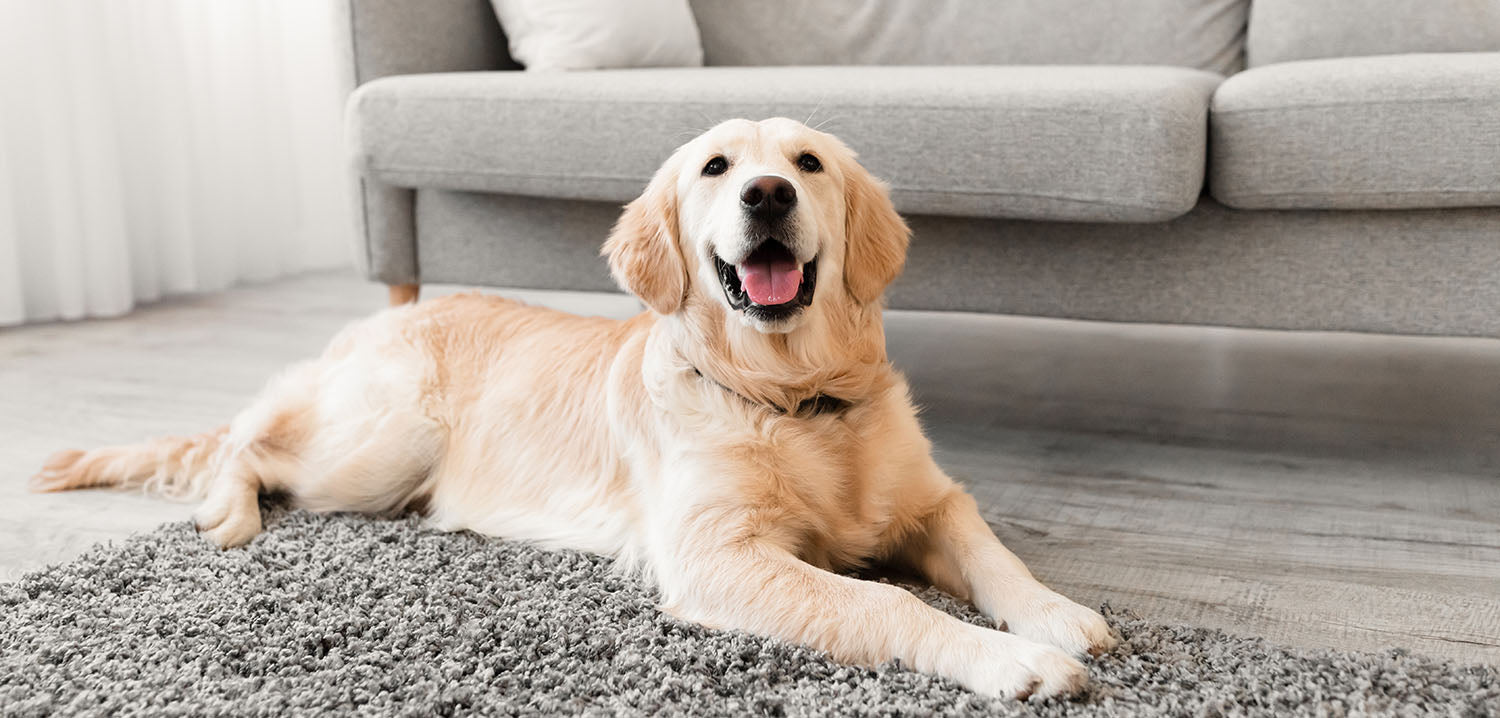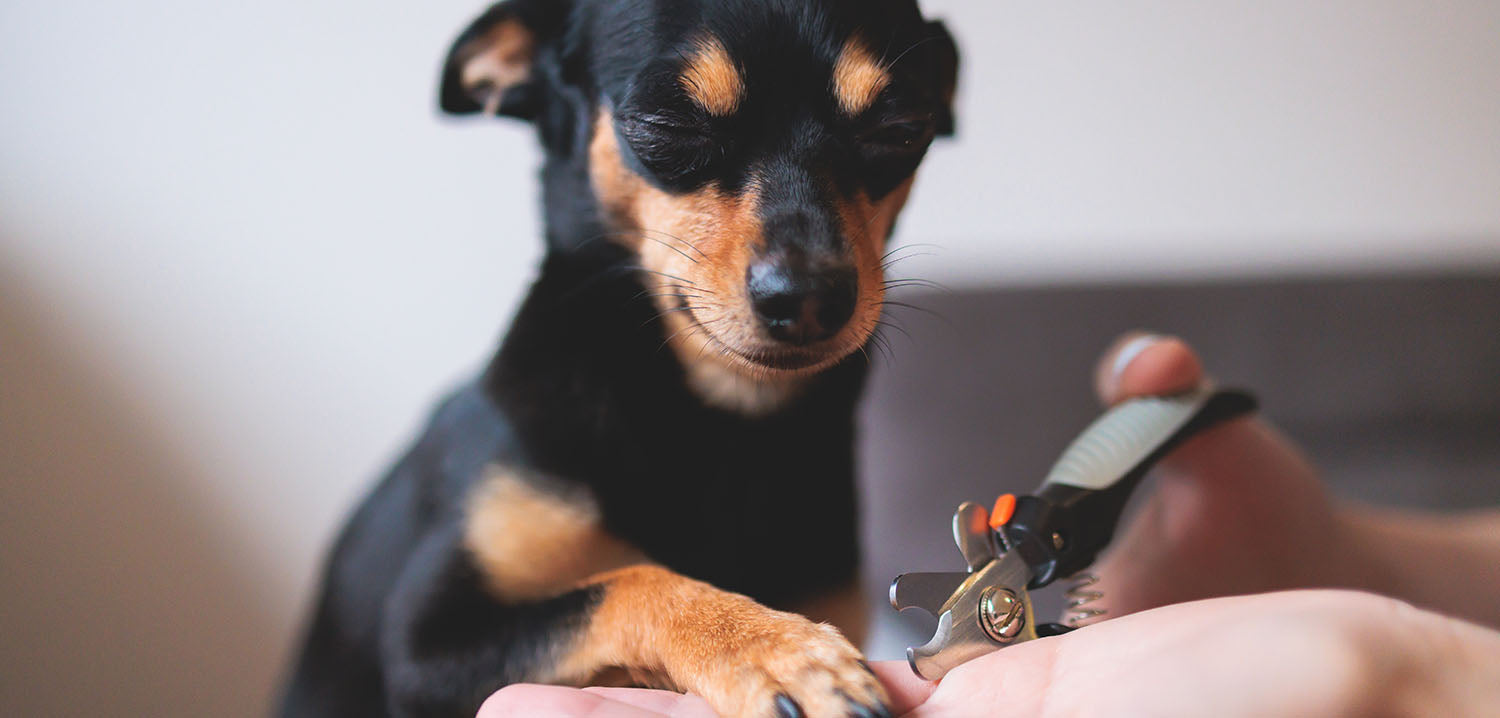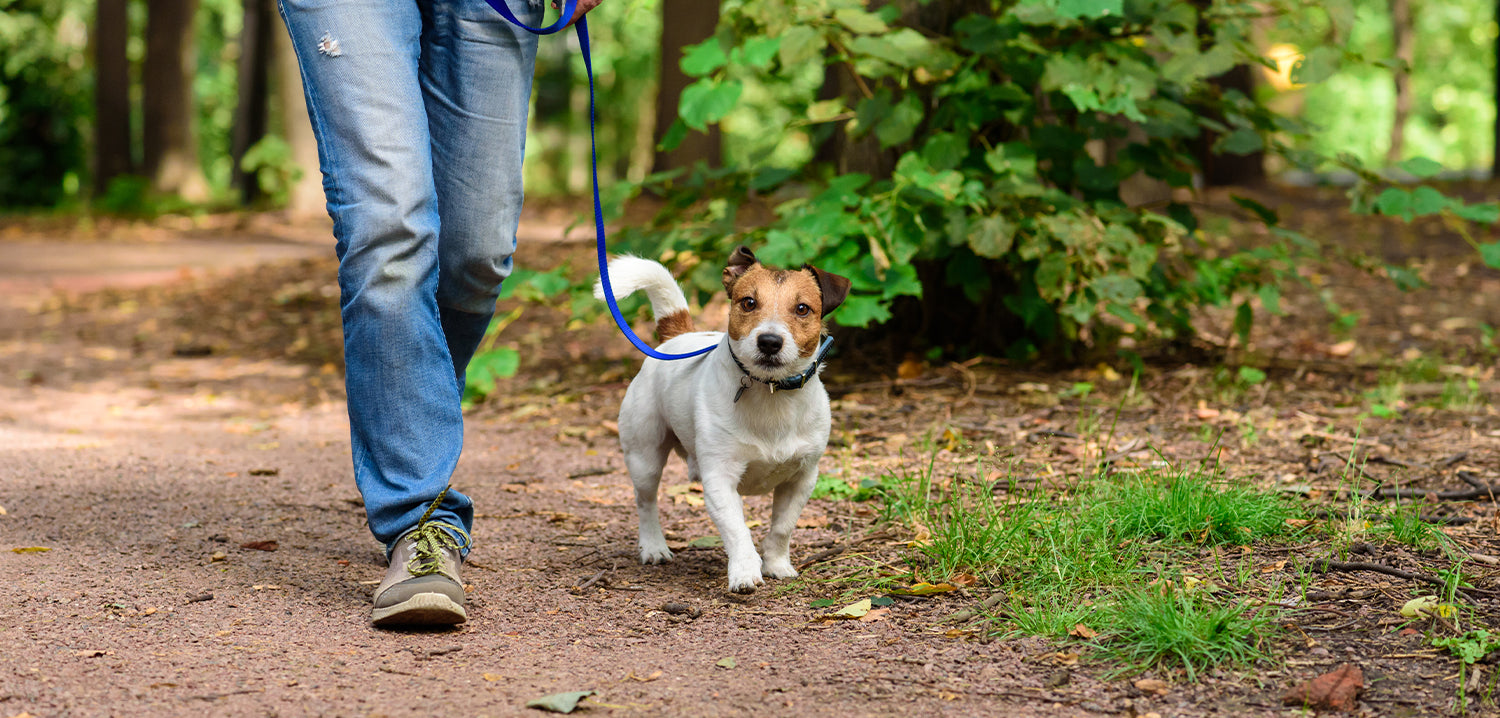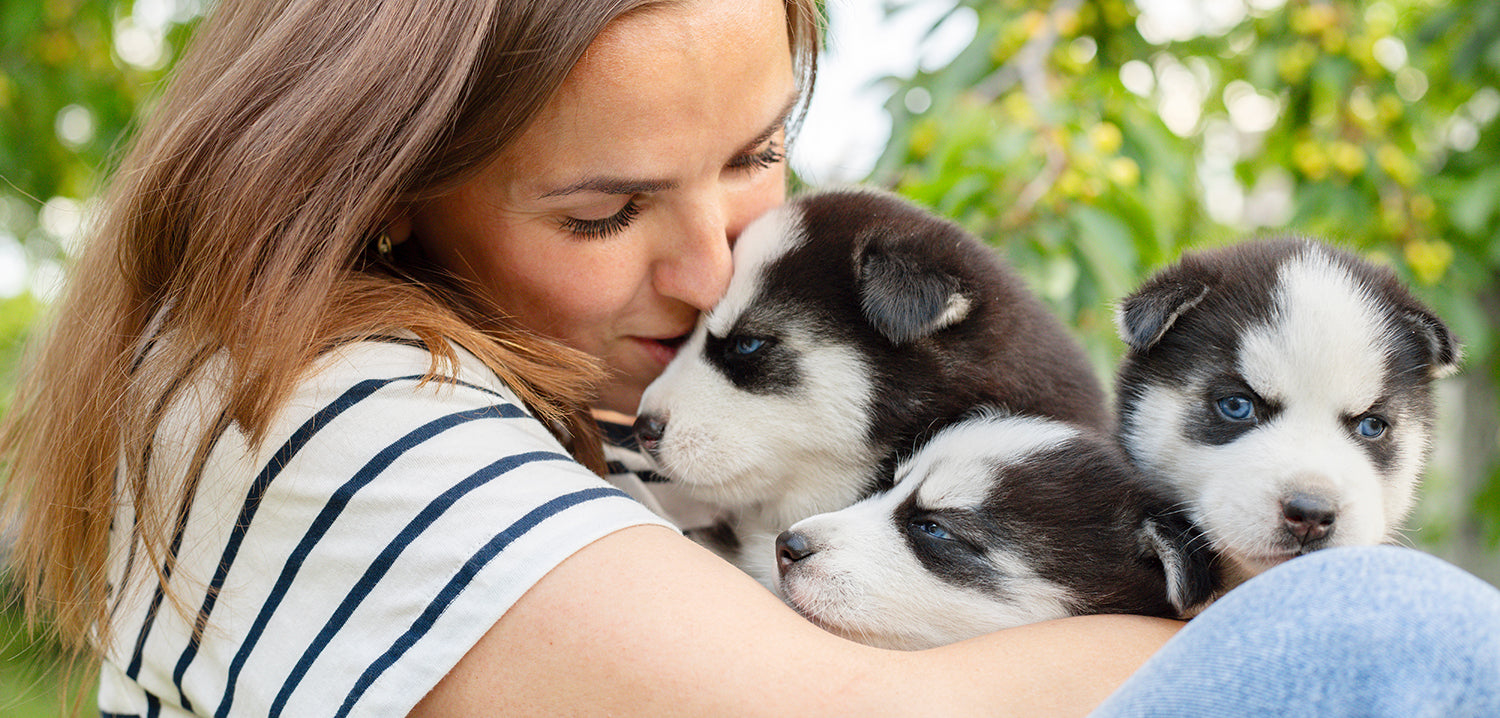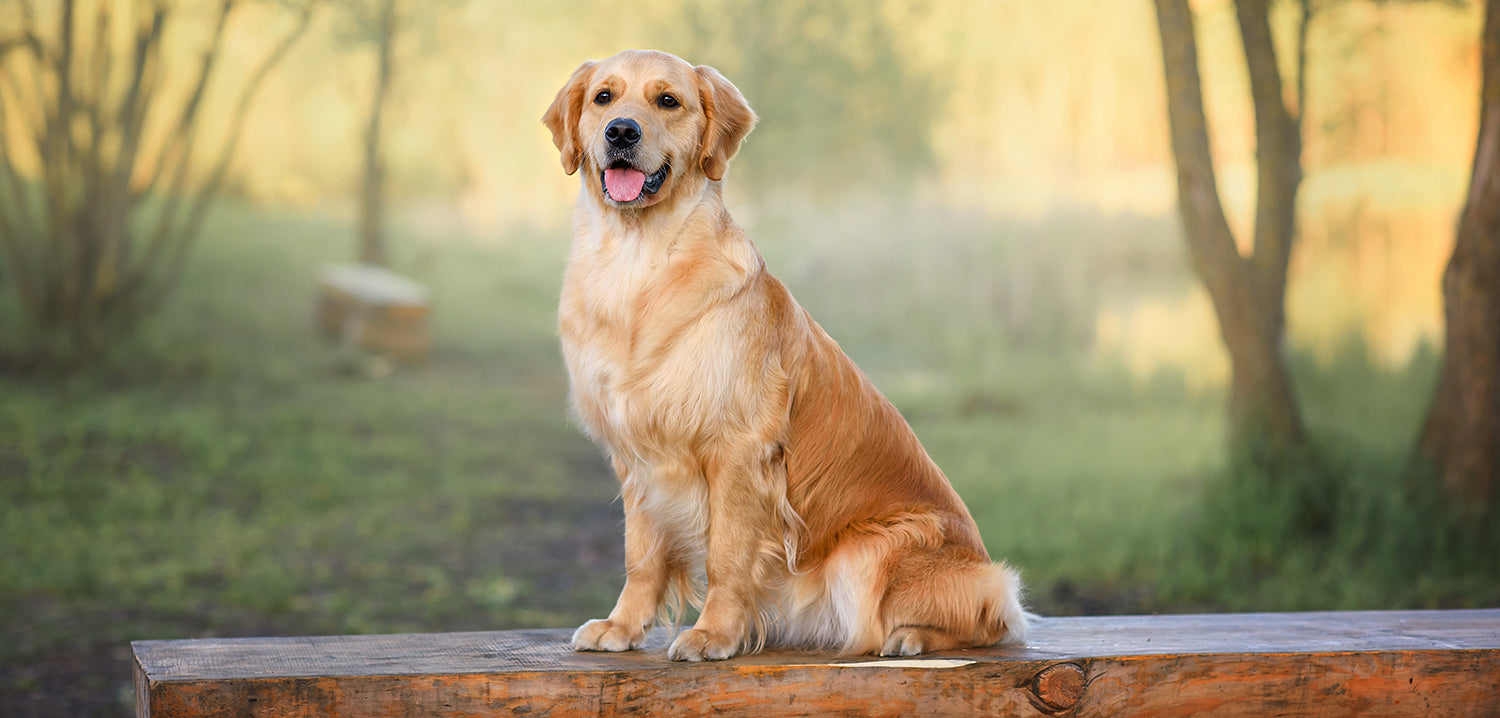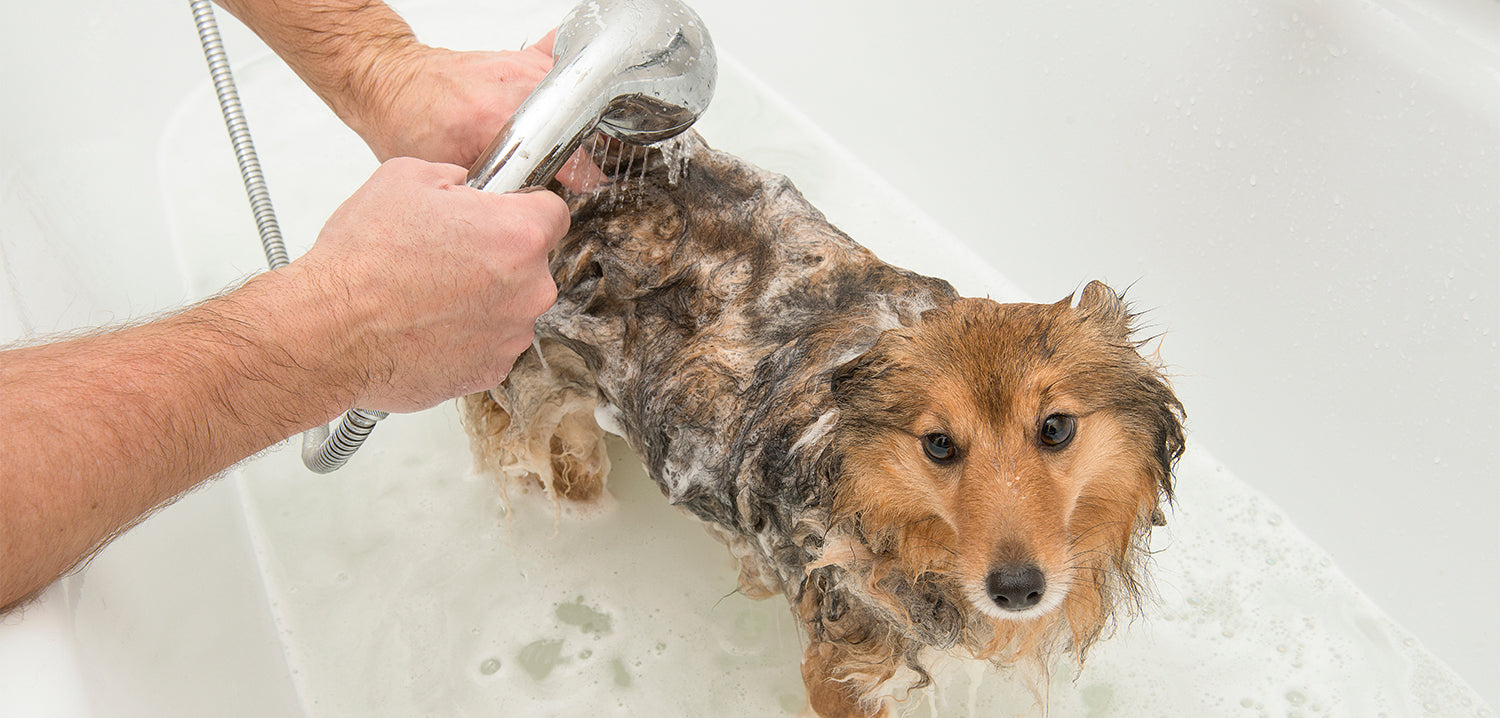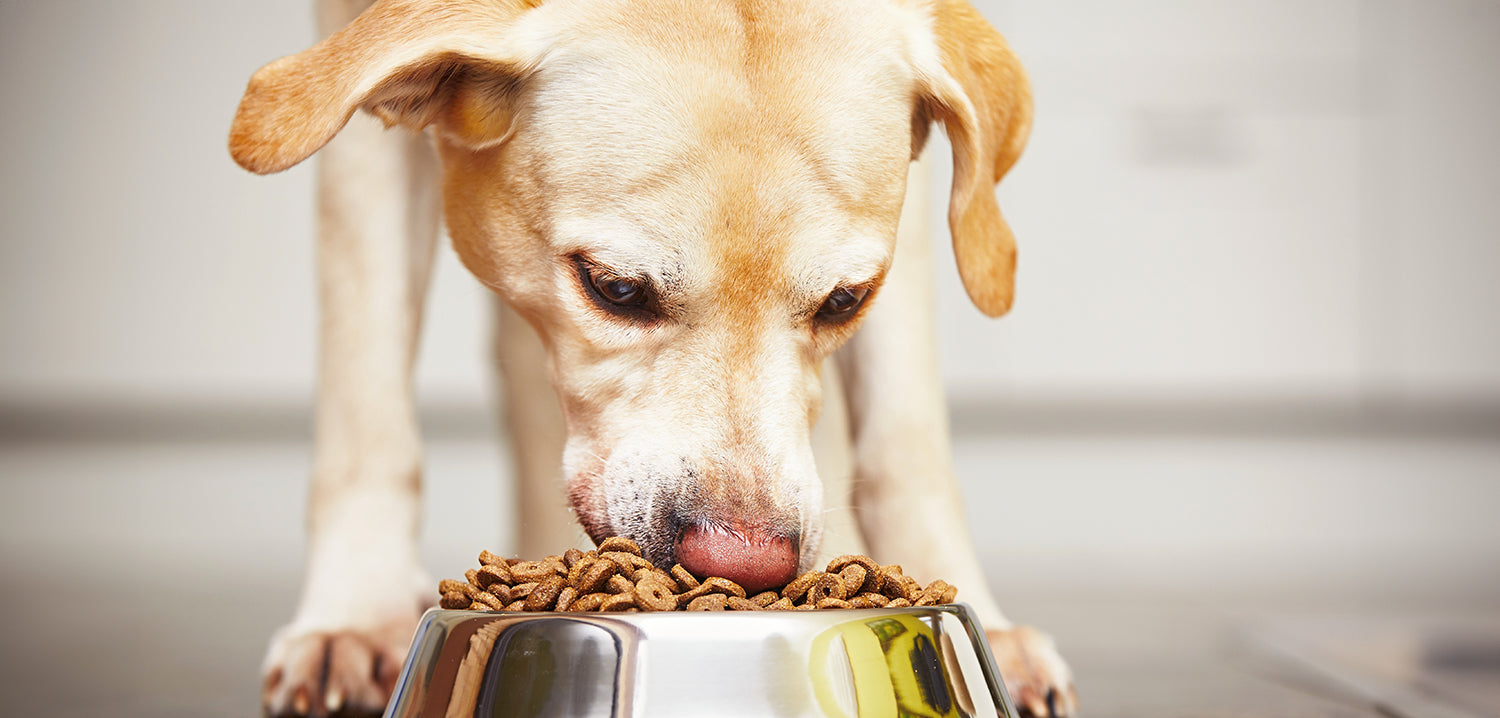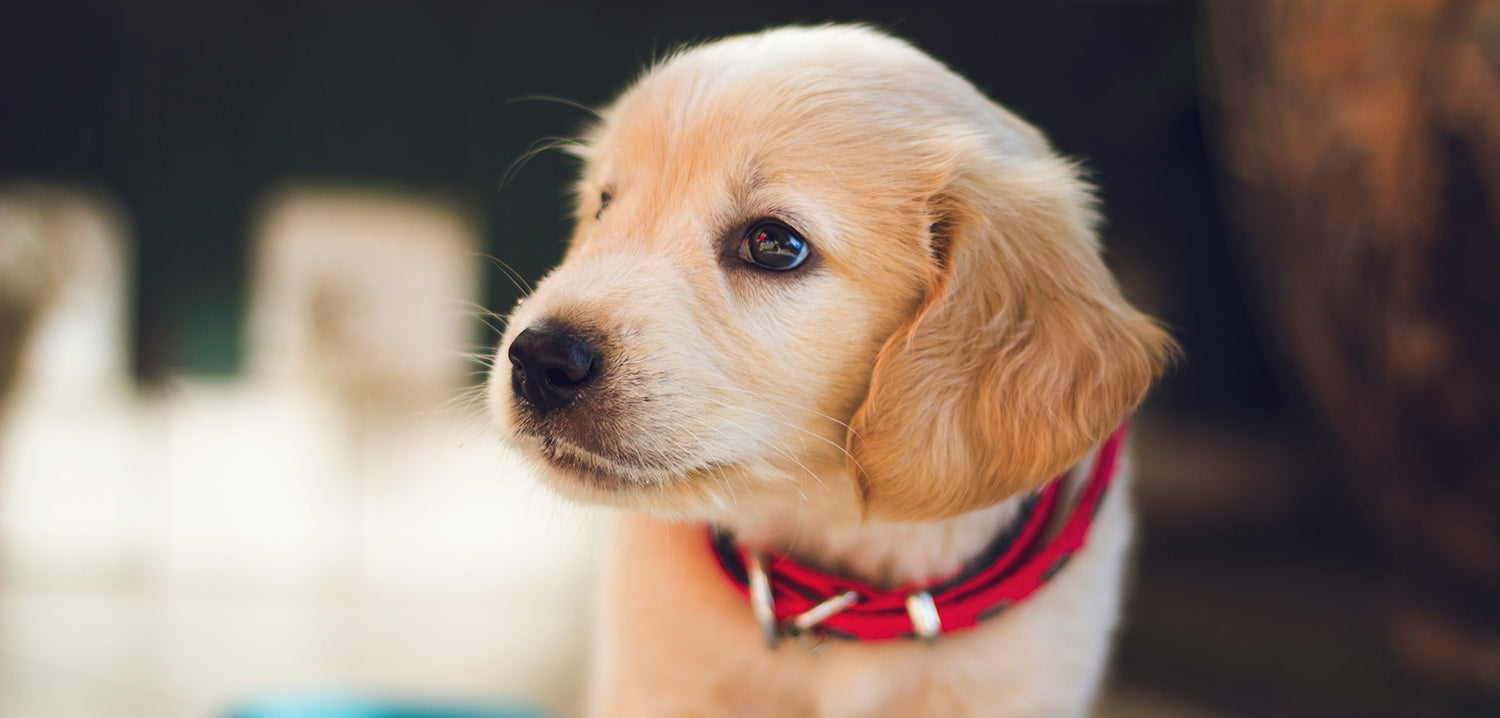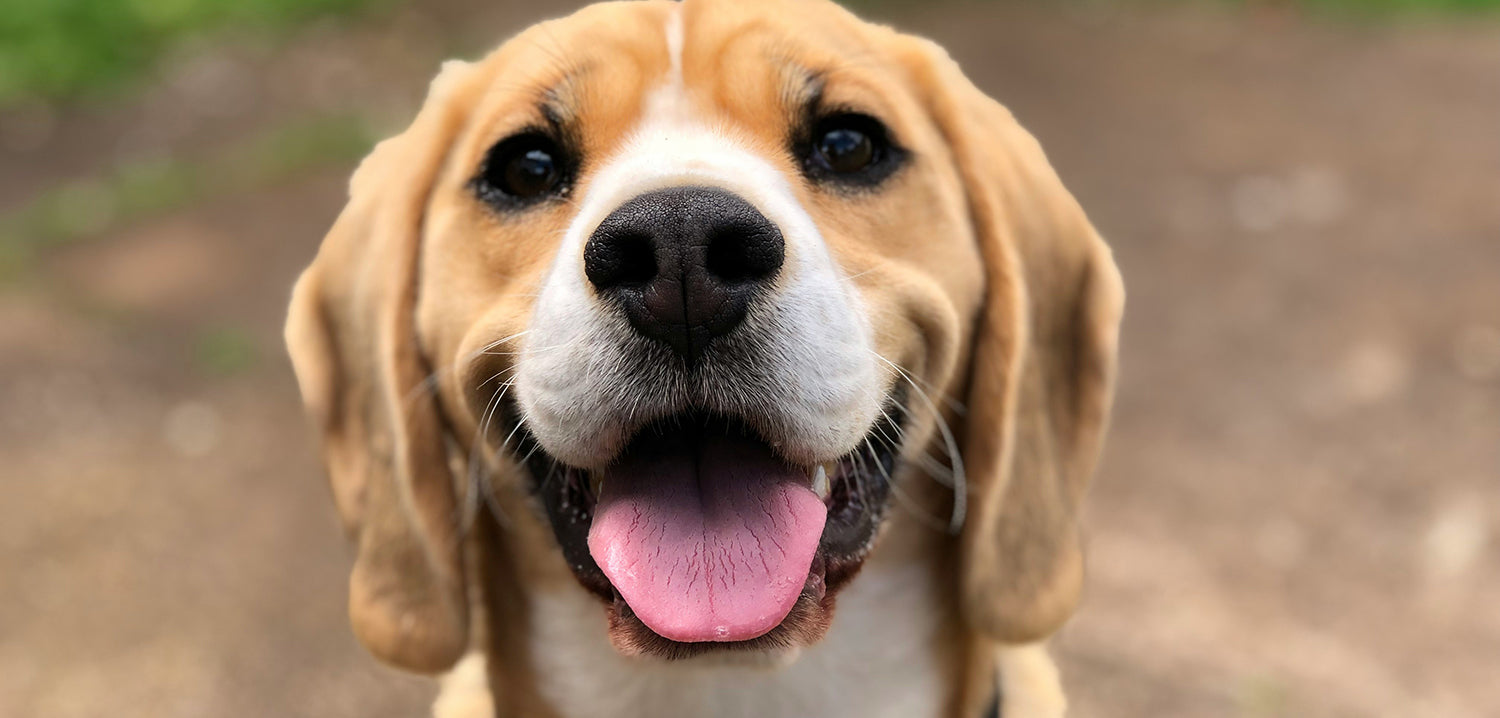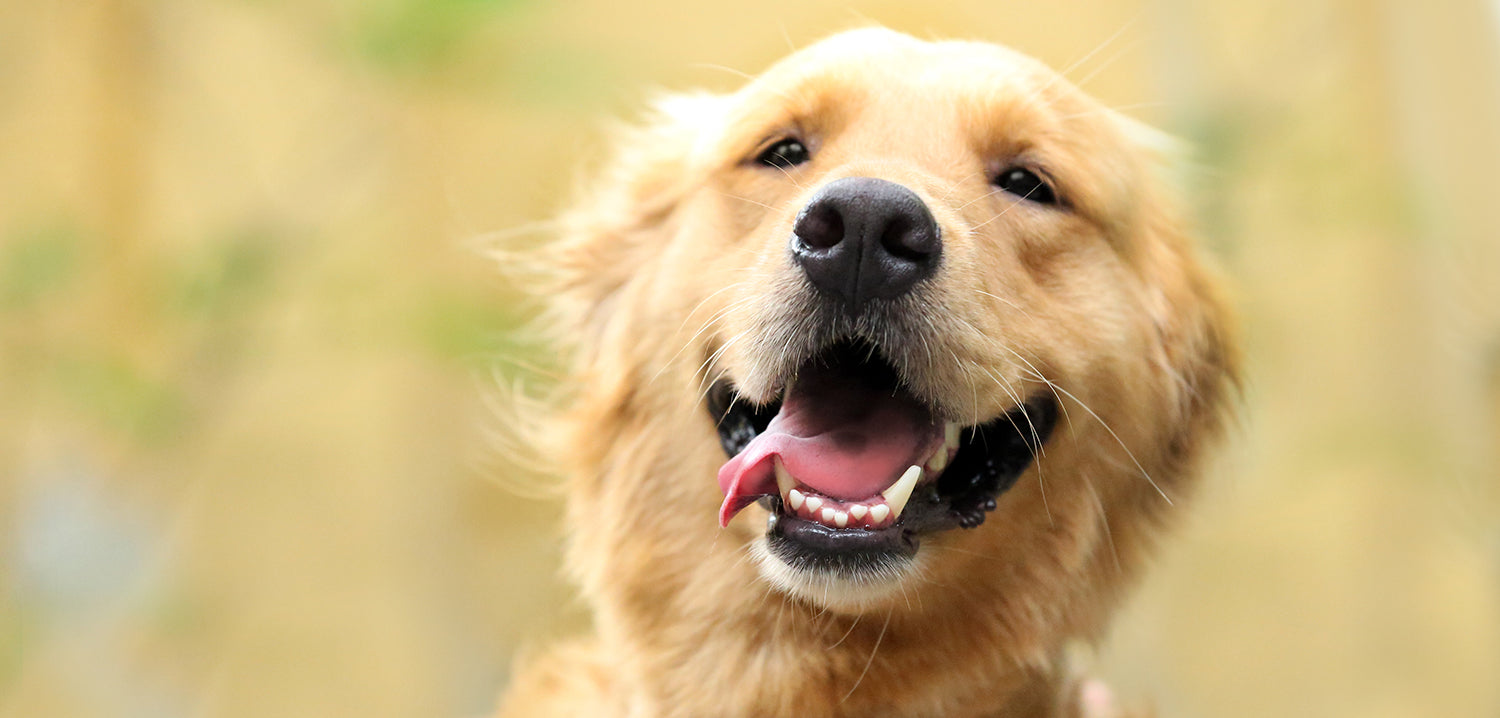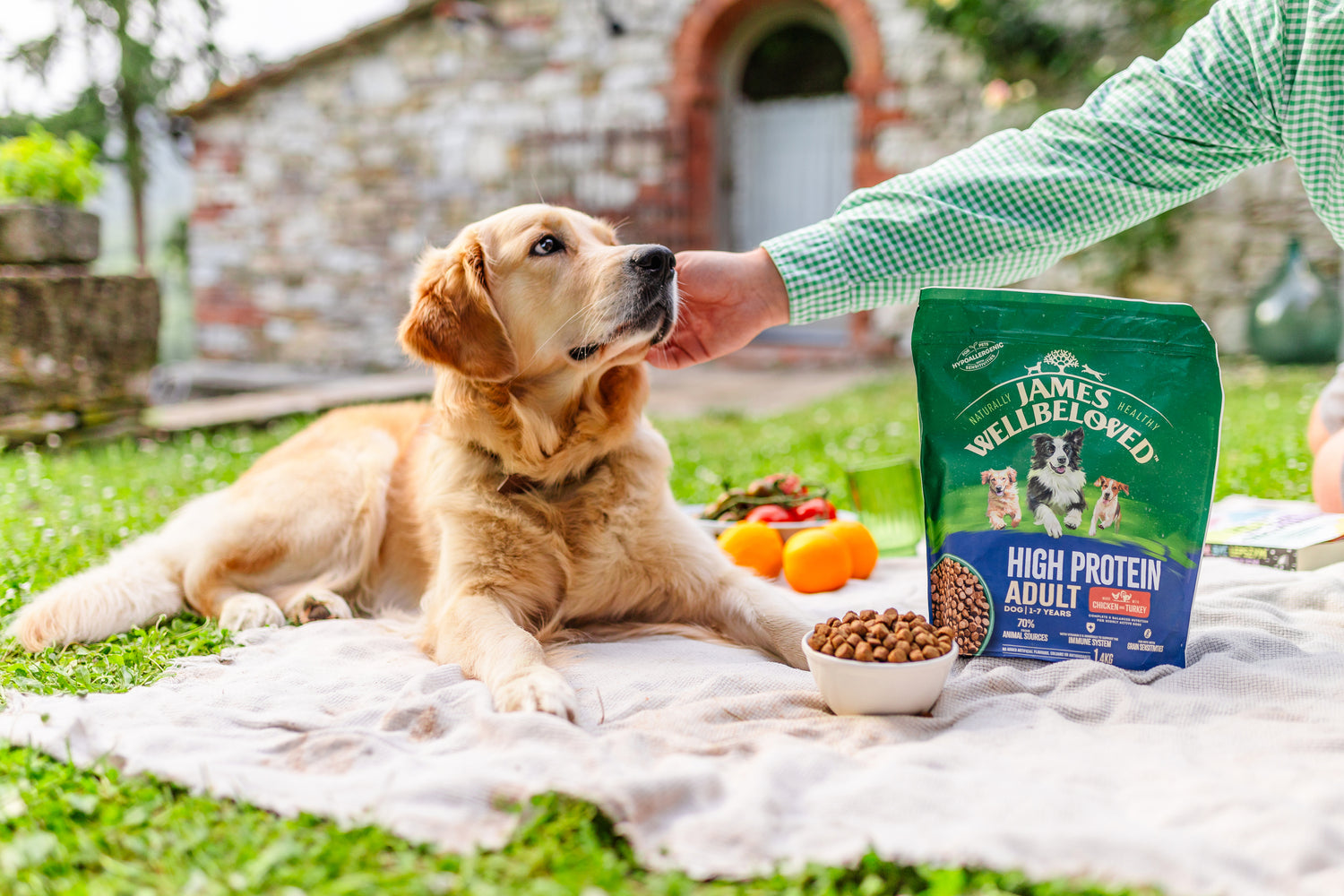As a dog owner, you’ve probably heard that peanut butter makes a delicious treat for your pooch. And the good news for them is it’s true! There are a couple of things to watch out for, but our four-legged friends can enjoy the occasional spoonful of nutty goodness.
So, if dogs can eat peanut butter, does that mean that dogs can eat peanuts whole too? Yes and no - there are different rules for different types!
Read on to find out when dogs can eat peanuts and how many they are allowed to eat, and even if dogs can eat dry roasted peanuts or salted peanuts. We’ll also cover how much peanut butter dogs can eat and potential risks to be aware of.
Can dogs eat peanuts?
Yes, dogs can eat peanuts, but only certain types. Dogs can eat dry roasted peanuts and raw peanuts - but they must be plain. Seasoning is strictly out of bounds, so if you’re wondering if dogs can eat salted peanuts, or other flavours such as honey roasted or spiced, we’re afraid the answer is no. In fact, ‘plain is best’ is a good rule to follow in general if you are thinking about sharing any kind of human food with your dog.
That said, while plain peanuts are safe for your pooch to eat, they are high in fat, so should only be allowed in small amounts. But, eaten as a tasty occasional treat, peanuts can be a yummy source of protein, vitamin B-6, vitamin E, niacin and healthy fats.
Make sure you remove any shells from the peanuts before letting your dog have them, as these could cause them to choke, especially if your dog is small. You may also find that crushing the peanuts makes it easier for your pooch to enjoy them.
Can dogs eat peanut butter?
Yes, dogs can eat peanut butter as an occasional treat. But it’s important that you only let them have varieties that don’t contain the artificial sweetener Xylitol, as this is toxic for dogs. Low salt varieties are also the best choice for our canine friends.
How to feed dogs peanuts safely?
Moderation is key to feeding your dog peanuts safely. There are also a few added ingredients to watch out for, which you can read more about below.
It’s always advised that you speak to your vet before feeding your dog something new, as each dog has unique nutritional and health needs. If your dog is overweight, is on a special vet-recommended diet or has kidney problems, it’s best to avoid giving them peanuts or peanut butter.
Also, like humans, dogs can have allergies to nuts, so always start out by giving them a small amount and watching for any sort of negative reaction. If they start to cough, itch, vomit or show signs they’re having trouble breathing, get your dog to the vet as quickly as possible.
Avoid salted & honey roasted peanuts
As delicious as they are, dogs can’t eat salted peanuts or flavoured varieties like honey roasted peanuts. Salted peanuts contain salt that is way above a dog’s recommended salt intake and could make them unwell. In a similar way, honey has a very high sugar content, which can cause weight gain and dental problems. Other popular flavours such as spicy or BBQ peanuts are also likely to contain salt, spices and flavourings that can upset your dog’s stomach or cause irritation. So regardless of how much interest your pooch shows in your tasty snacks, remember plain is always best!
There are similar rules for when dogs can eat popcorn, which can be eaten plain, but not with unhealthy toppings like salt, butter and sugar.
Portion control when feeding peanuts to dogs
Unfortunately for your pooch, dogs can’t gobble down as much peanut butter as they so wish. Due to the high fat content in peanuts and peanut butter, dogs shouldn’t be eating too much of either, or they’re at risk of putting on weight. Eating a high amount of fat can also cause an upset stomach and even lead to pancreatitis in the long term, which can be dangerous in some cases.
If you do give your dog peanuts, limit them to just a few peanuts or a teaspoon of peanut butter every now and then. It shouldn’t be something they eat on a daily basis.
Look out for Xylitol which is toxic for dogs
When giving your pooch human food, it’s really important that you check the ingredients for the artificial sweetener Xylitol. It’s often found in peanut butter and other processed foods and is highly toxic for dogs.
Even just a small amount of Xylitol can cause a dangerous drop in blood sugar which can cause liver failure to occur. If your dog does eat food containing Xylitol, contact a vet immediately for advice. Signs of Xylitol poisoning include disorientation, staggering, panting, collapsing and seizures, which will require immediate medical attention.
Other foods such as onions, garlic, chocolate and grapes are also dangerous for dogs to eat, so it’s really important to know about what’s on the list of toxic foods for dogs before sharing any of your scraps with them. Bags of mixed snacks can be of particular risk, as they can contain toxic ingredients for dogs, for example nuts mixed with chocolate.
Fun ways to feed dogs peanuts & peanut butter
Peanuts and peanut butter don’t just make delicious treats for your pooch, but can also be incorporated into other areas of their lives to make things a little more fun!
Create homemade peanut butter dog treats
If you’re feeling creative, there are lots of ways you can use peanut butter to make your own homemade dog treats. Your furry friend will thank you for it!
These include peanut flavoured dog biscuits and no-bake doggy protein balls. Some people even make their own homemade peanut butter, as it’s a great way to control what ingredients go into it.
Use peanut butter as a distraction while clipping dogs’ claws
There are few dogs in the world that enjoy having their nails clipped, but caring for your dog’s paws is essential for preventing unwanted problems. Luckily, peanut butter can sweeten the deal a little!
Simply smear some peanut butter onto a plate or spoon, and use it as a distraction while you attend to their claws. They’ll be too busy licking up the nutty goodness to even mind! This is much easier if you have a second person who can help out by holding the peanut butter for your pooch, while you focus your attention on the job at hand.
Putting peanut butter in a toy as a boredom buster
To make your pooch work for their treat - and keep them entertained - pop some peanut butter inside a kong toy along with some dry kibble and leave them to use their natural scavenging abilities to fish the food out. It’s a great way to keep them stimulated and busy - if you ever need to provide them with a distraction!
So, what’s the verdict on peanuts and peanut butter? The good news for our four-legged friends is they can enjoy both, but moderation is key! Dogs can eat dry roasted peanuts and raw peanuts, as long as they’re plain. The important things to keep in mind are that you avoid seasoning and that any peanut butter they eat does not contain Xylitol.
This said, while peanuts and peanut butter can be safe for dogs to eat as an occasional treat, it may not be the best option for your dog. Discover other human foods and natural alternatives that make healthy dog treats in our article on the topic.
